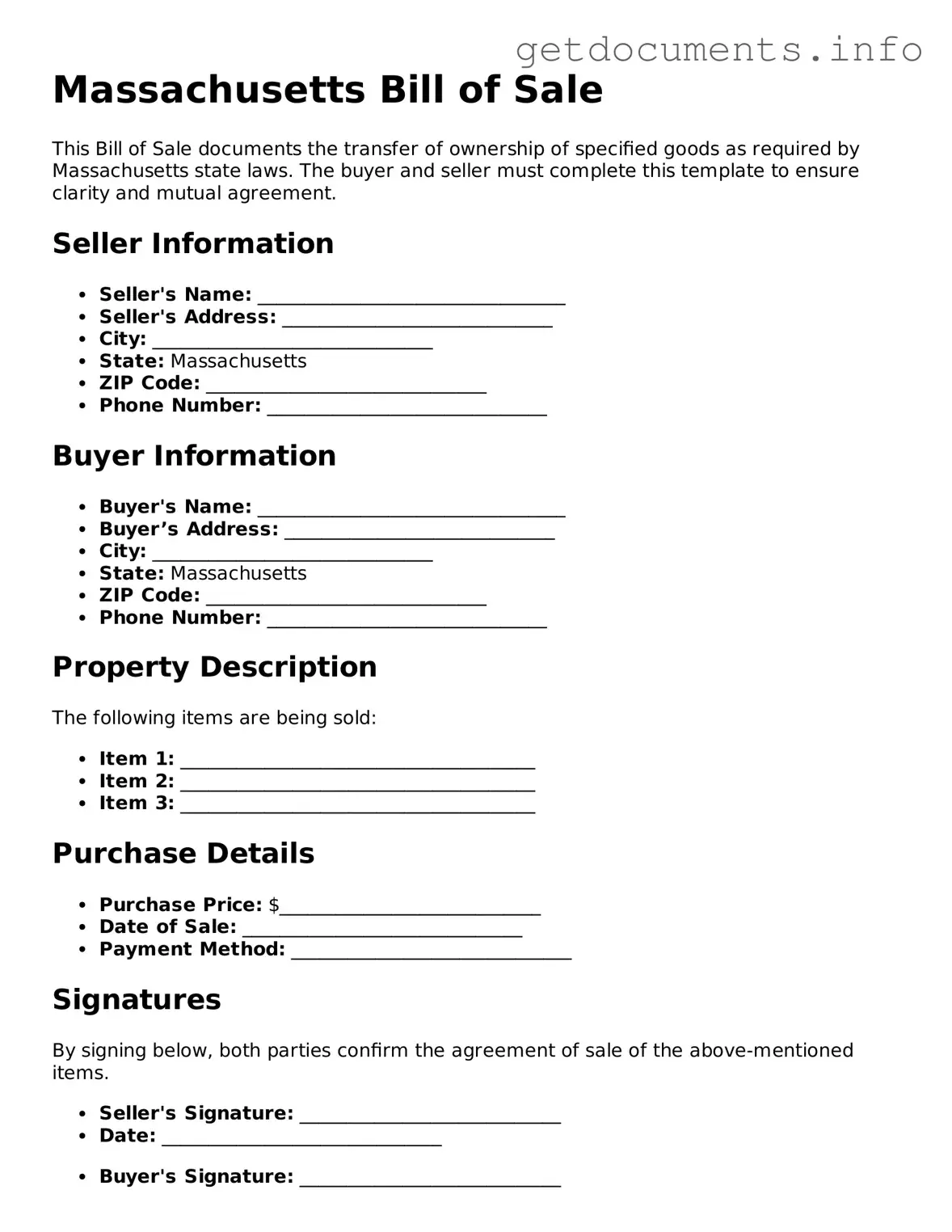Free Bill of Sale Template for Massachusetts
The Massachusetts Bill of Sale form is a legal document that facilitates the transfer of ownership of personal property from one party to another. This form serves as proof of the transaction and outlines essential details such as the item description, sale price, and the parties involved. For those looking to complete this transaction smoothly, filling out the form is a crucial step; click the button below to get started.
Access Bill of Sale Editor

Free Bill of Sale Template for Massachusetts
Access Bill of Sale Editor
Got places to be? Complete the form fast
Fill out Bill of Sale online and avoid printing or scanning.
Access Bill of Sale Editor
or
⇩ PDF File
